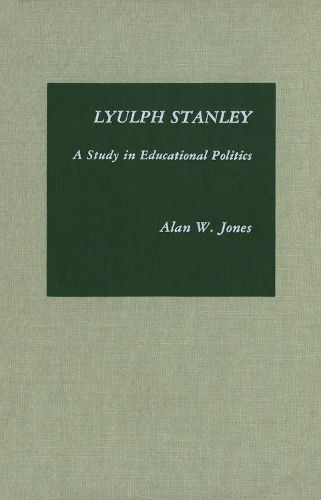Readings Newsletter
Become a Readings Member to make your shopping experience even easier.
Sign in or sign up for free!
You’re not far away from qualifying for FREE standard shipping within Australia
You’ve qualified for FREE standard shipping within Australia
The cart is loading…






Lyulph Stanley, the uncle of Bertrand Russell, was an influential and articulate aristocrat who believed that every child should learn from a good teacher in a comfortable building. He championed the school board cause during the latter half of the Victorian era, a time of tremendous educational change in England. With the great increase in urban populations, the schooling provided by voluntary organizations had become inadequate. The state had taken control of education, working through its local representatives, the elected school boards. But controversy arose between churches, which were opposed to secular education, and school boards, and between local and central authorities. The author follows Stanley’s political career, clarifying the views of the school board supporters and analyzing the political differences underlying the controversies. Students of education, history, and politics can benefit from his contribution to the re-assessment of this turbulent period in English educational history.
$9.00 standard shipping within Australia
FREE standard shipping within Australia for orders over $100.00
Express & International shipping calculated at checkout
Lyulph Stanley, the uncle of Bertrand Russell, was an influential and articulate aristocrat who believed that every child should learn from a good teacher in a comfortable building. He championed the school board cause during the latter half of the Victorian era, a time of tremendous educational change in England. With the great increase in urban populations, the schooling provided by voluntary organizations had become inadequate. The state had taken control of education, working through its local representatives, the elected school boards. But controversy arose between churches, which were opposed to secular education, and school boards, and between local and central authorities. The author follows Stanley’s political career, clarifying the views of the school board supporters and analyzing the political differences underlying the controversies. Students of education, history, and politics can benefit from his contribution to the re-assessment of this turbulent period in English educational history.